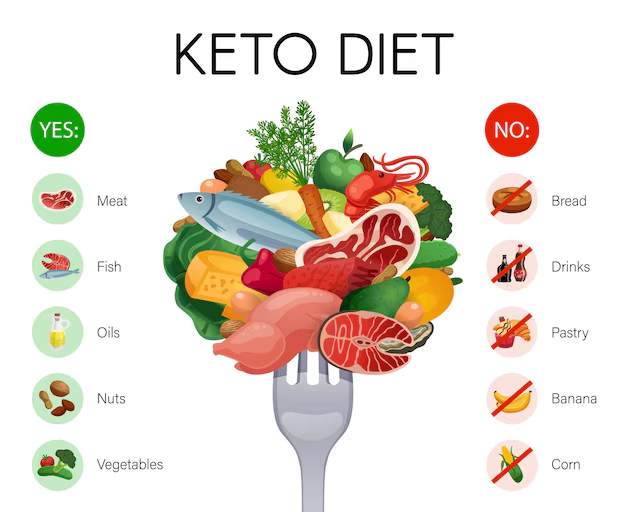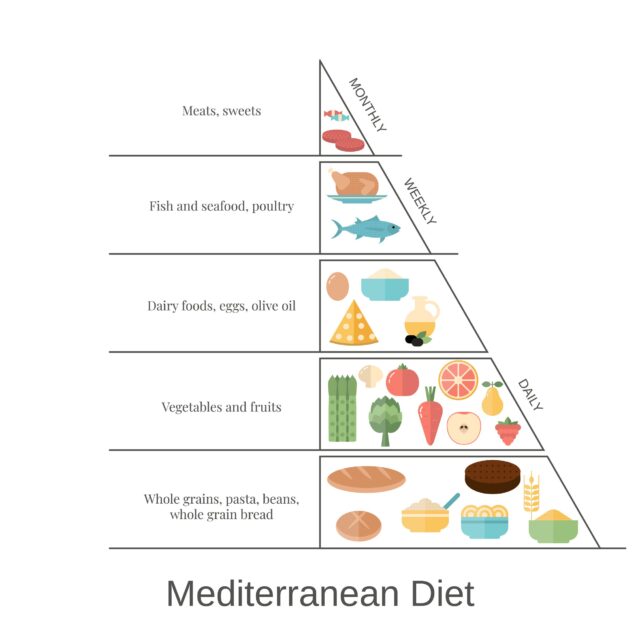Generally, most people who go on any kind of diet are doing this to lose weight. One of the more famous diets is the Keto Diet, where a close to complete removal of carbohydrates from daily meals will bring the dieting person into what is called Ketosis. This is when the body switches from burning carbohydrates for fuel to fats.

The history of diets spans thousands of years, evolving alongside cultural beliefs, scientific discoveries, and societal trends. In ancient times, diets were shaped by necessity and local resources, with Greeks and Romans emphasizing moderation for health. Fasting has deep roots in various religious practices. In the 19th and early 20th centuries, as industrialization changed food availability, diets like William Banting’s low-carb regimen and calorie-focused approaches emerged. The mid-20th century saw the rise of convenience foods and weight-loss fads, such as the grapefruit diet. The late 20th and early 21st centuries brought low-fat, low-carb, and high-protein trends like Atkins, paleo, and keto, alongside a focus on plant-based eating and holistic wellness. Today, diets often emphasize personalization, environmental impact, and overall health, reflecting a blend of ancient practices and modern science.
The Paleo diet focuses on eating whole, unprocessed foods that our hunter-gatherer ancestors might have consumed, like lean meats, fish, fruits, vegetables, nuts, and seeds, while avoiding grains, legumes, dairy, and processed foods. It emphasizes natural sources of protein and healthy fats, with a goal of promoting a lifestyle closer to ancient eating patterns. By drastically reducing carb intake as is the most important aspect of the keto diet, the body shifts its energy reliance to fat, often aiding in weight loss and improved blood sugar levels.
The history of the keto diet dates back to the early 20th century, when it was first developed as a therapeutic treatment for epilepsy. In the 1920s, researchers discovered that a high-fat, low-carbohydrate diet could mimic the metabolic effects of fasting, reducing the frequency and severity of seizures in patients, particularly children. The diet fell out of favor with the advent of anticonvulsant medications in the 1940s and 1950s but remained a niche option for drug-resistant epilepsy.
In the 1990s, interest in the keto diet resurfaced due to media coverage and personal success stories, leading to renewed use in epilepsy treatment. By the 2010s, the diet gained widespread popularity for weight loss and metabolic health, as studies suggested it could help with obesity, type 2 diabetes, and other conditions by promoting fat burning and stabilizing blood sugar. Today, the keto diet is widely recognized as a low-carb approach not only for its original therapeutic purposes but also for weight management and other health benefits, with ongoing research exploring its broader applications.
The purpose of the Mediterranean diet is to promote overall health and well-being by emphasizing balanced and nutritious eating patterns that support heart health, reduce inflammation, and improve longevity. This diet is known for its ability to lower the risk of chronic diseases, particularly cardiovascular conditions, due to its emphasis on healthy fats like olive oil, nuts, and fatty fish, as well as fiber-rich foods such as fruits, vegetables, and whole grains. It also aims to support metabolic health, helping to manage blood sugar levels and weight in a sustainable way. Beyond physical health, the Mediterranean diet encourages a lifestyle that values social connections and mindful eating, contributing to a more holistic sense of well-being.

For many, the idea of going on a specific diet may be the first time that person ever thought about food, or the foods that the person eats. I’ve long told my patients to think of food as medicine. What a person eats has a huge impact on how they feel. Consider the old adage, “You are what you eat”.
—
Harrison Levine




